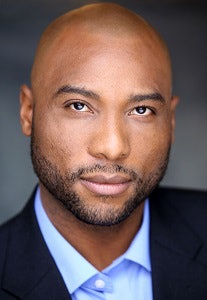If you are reading this, there is a good chance that you or someone you know struggles with anxiety. The Anxiety and Depression Association of America estimates that 40 million adults age 18 and older suffer from an anxiety disorder. At 18 percent of the nationwide population, medication use is at an all-time high and more people are struggling to cope than ever before. The struggle is arguably more existent in the African-American community. Anxiety.org estimates that 25 percent of Black Americans will experience anxiety at some point of their lives, more than the national average. It is clear that the entire nation needs support, but African-Americans, especially, should adopt mindfulness strategies to cope with it. The issue is so common that hip hop artists Logic and J. Cole wrote songs about anxiety to help their listeners.
First, what does it mean to be mindful? University of Kentucky’s counseling center defines mindfulness as ‘being intentionally aware in the present moment without judgment’. In other words, mindfulness happens when we make observations of the world around us without thinking too much about it. Another way to describe it is being content with our surroundings without emotional attachment or overthinking. Those who practice mindfulness have the ability to ‘turn off the chatter’ in their minds and be at peace with their situation.
As evidenced by national statistics on anxiety, millions of people are turning to treatment because they are unable to deal with daily stress. Common stressors are money, work and professional or familial relationships. However, one that seems specific to the African-American population is racism which Anxiety.org correlates with not only anxiety, but other mental health issues. In one study, Pew Research Center found that 88 percent of Black Americans believe that racism is prevalent in the U.S. Part of the issue, though, is that stigmas often prevent them from seeking support for their mental health issues.
 Benjamin Harris
Benjamin HarrisThe National Institute on Drug Abuse estimates that people who struggle to cope with their anxiety have a higher chance of turning to drugs. On one hand, it is to the credit of the country that medicine is accessible to those who can afford it. There are many nations that do not have the same access and leave people with no options. The problem, however, is that there is also a need for non-medicinal treatments that help people cope with their anxiety. There are many approaches, but meditation is a practice that is both effective and inexpensive.
Meditation is a form of mental exercise that is aimed at focusing thoughts to achieve a heightened spiritual state, and can be practiced in various forms and degrees. Medical News Today discusses seven different types, all of which have different sub-types. The types they discussed are: loving-kindness meditation, body scan or progressive relaxation, mindfulness meditation, breath awareness meditation, Kundalini yoga, zen meditation and transcendental meditation. There are many other types, but these are just a few to consider.
The National Center for Complementary and Integrative Health cites that meditation does not only reduce anxiety, but also depression, insomnia and a number of other issues. Psychology Today identifies twenty benefits, all of which they describe as being scientifically-validated. Those benefits include health, happiness, self-control, brain function, productivity, and promotes wisdom. Together, they help to reduce anxiety and improve overall quality of life. A 2014 study at UNC Chapel Hill (Woods-Giscombe and Gaylord) found that African-Americans who participate in meditation have better stress management, improved health, self-awareness, and purposefulness. One concern they have, though, is that many African-Americans may not be aware or open to meditation practices. ESSENCE Magazine tries to bring awareness by suggesting a few smartphone apps to help guide meditation practice: Meditation Studio, Stop Breathe, & Think, Headspace, Omvana, Insight Timer, and the Mindfulness App. Some of these require monthly subscriptions and fees, but some are available at no cost. Then again, how much is too much to invest when it comes to your mental health? Peace of mind is priceless.
To think that mindfulness is achieved by chance or coincidence is a mistake. People who are mindful make a consistent, intentional effort to preserve their mental health. Where should you start? One – practice reflection and identify the source(s) of your anxiety. Two – Research the different types of meditation and consult a healthcare professional to make sure you are healthy enough to do it. Three – Do it regularly, especially after achieving desired results. The bottom line is that mental health can be difficult to treat, but it is far from impossible to do it. African-American communities should challenge the stigmas attached to anxiety and find healthy ways to treat it, starting with meditation training. In the words of J. Cole, “I understand this message is not the coolest to say, but if you [are] down to try it I know of a better way – Meditate.”
Benjamin Harris is a high school English teacher and a Ph.D. student at Bellarmine University.



















